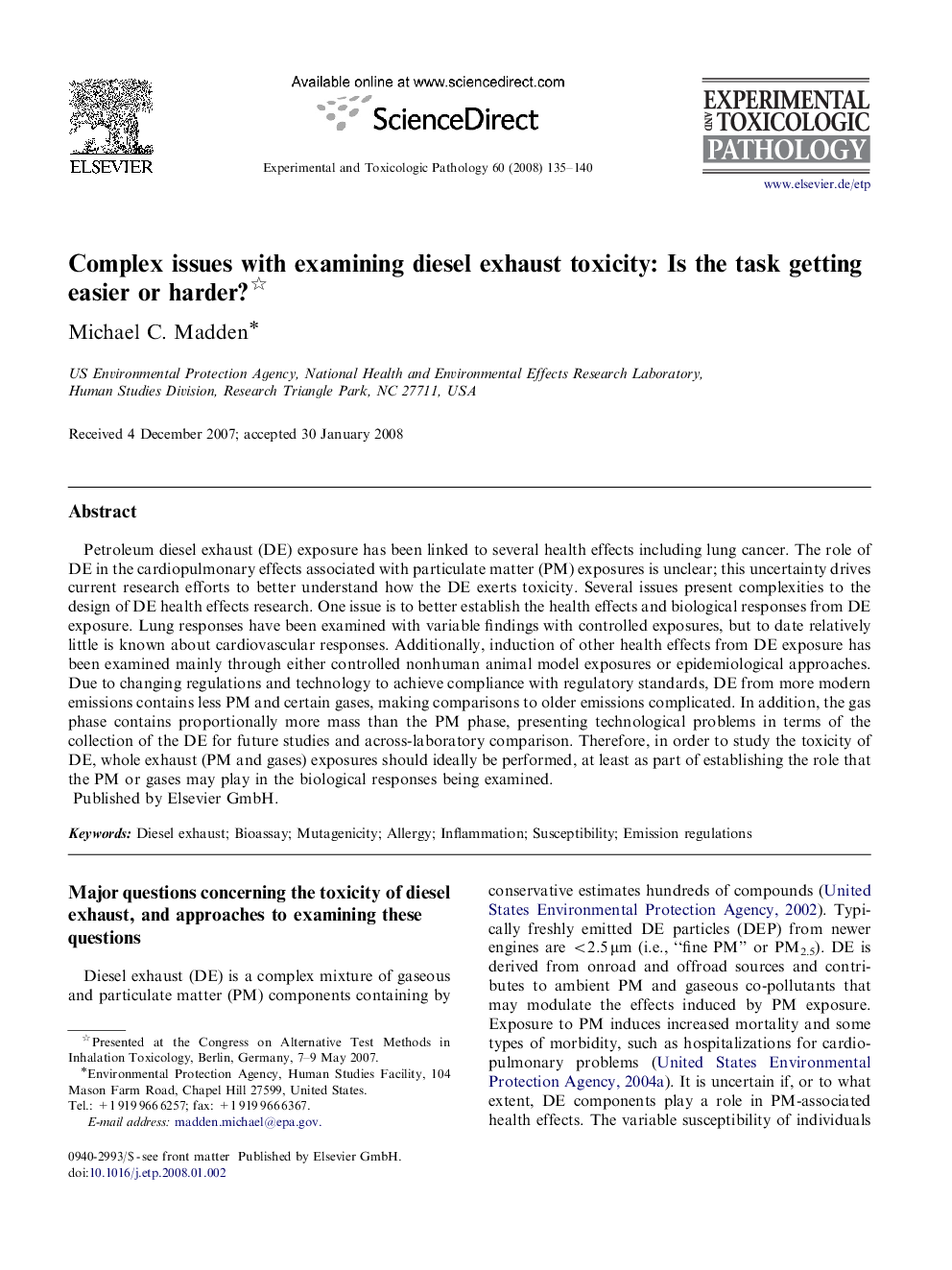| Article ID | Journal | Published Year | Pages | File Type |
|---|---|---|---|---|
| 2499268 | Experimental and Toxicologic Pathology | 2008 | 6 Pages |
Petroleum diesel exhaust (DE) exposure has been linked to several health effects including lung cancer. The role of DE in the cardiopulmonary effects associated with particulate matter (PM) exposures is unclear; this uncertainty drives current research efforts to better understand how the DE exerts toxicity. Several issues present complexities to the design of DE health effects research. One issue is to better establish the health effects and biological responses from DE exposure. Lung responses have been examined with variable findings with controlled exposures, but to date relatively little is known about cardiovascular responses. Additionally, induction of other health effects from DE exposure has been examined mainly through either controlled nonhuman animal model exposures or epidemiological approaches. Due to changing regulations and technology to achieve compliance with regulatory standards, DE from more modern emissions contains less PM and certain gases, making comparisons to older emissions complicated. In addition, the gas phase contains proportionally more mass than the PM phase, presenting technological problems in terms of the collection of the DE for future studies and across-laboratory comparison. Therefore, in order to study the toxicity of DE, whole exhaust (PM and gases) exposures should ideally be performed, at least as part of establishing the role that the PM or gases may play in the biological responses being examined.
